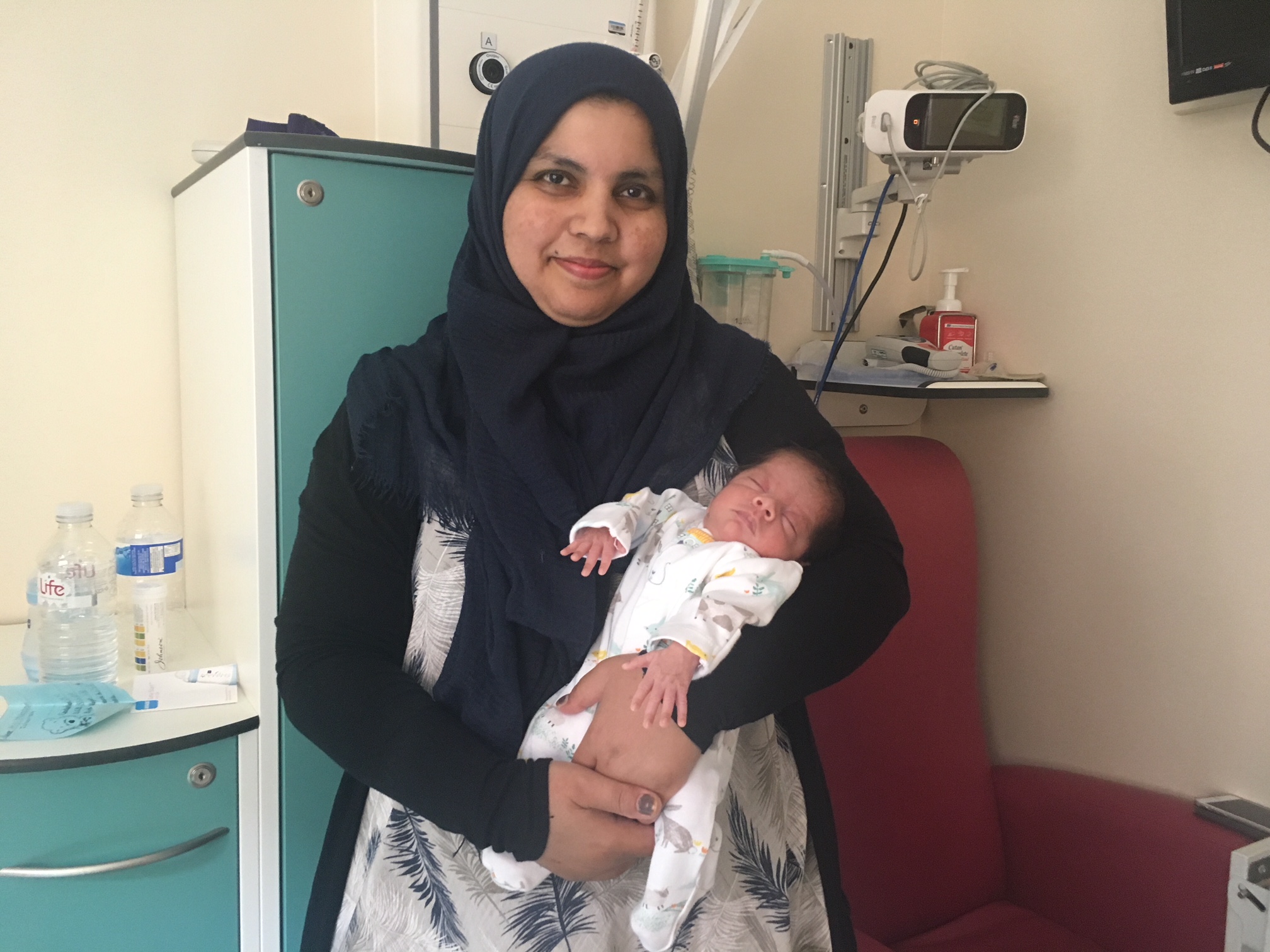
Two teams at the Royal Free London have been awarded funding to develop innovative ways of improving patient safety.
The money, which comes from UCLPartners, has been awarded to the neonatal ward at Barnet Hospital and the maternity unit at the Royal Free Hospital.
At Barnet Hospital, £10,000 has been awarded to the neonatal unit to implement a programme to help parents be primary care-givers for their newborns supported by the clinical team.
The programme involves enabling mums and dads to become much more involved in the care of their babies, which means better outcomes for everyone. The money will go towards implementing this as a structured programme to provide staff education, parent education , appropriate communication and environment and psychological support.
Consultant Dr Shanthi Shanmugalingam, who is leading the project, said: “If we help parents to be primary care givers, it means they feel part of the team and not visitors. It means they feel much more involved and it’s not such a shock when they take their baby home.
“It also means the mums and dads are much less stressed. Having a baby in intensive care has a psychological impact for the whole family. This new programme will mean they can feel as if they are playing a much more important role in the care of their child while on the neonatal unit. We hope this will help with maternal bonding, that mums are more likely to breastfeed and that they feel more confident when it is time for their babies to go home.”
The neonatal unit also has 10 individualised care rooms (ICRs), which allow parents to stay alongside their babies as soon as their baby no longer needs intensive care.
Saira Mukadan, mum of six-week-old Zak, is one of the parents Shanthi and her team have helped to be a primary care giver.
Zak, who was born premature at 29 weeks, weighed only 2.8lbs at birth. With help from the neonatal team, Mrs Mukadan was able to provide care, including feeding and washing, for Zak, who now weighs nearly 4lbs and is ready to go home.
She said: “The staff explained everything to me very clearly and it was very helpful for me to understand every step of having a premature baby. When Zak was first born I cried every day and now I am crying because we are ready to go home and I’m leaving everyone here!
“I always felt like I was in safe hands. All the staff were on hand to explain things to me if I had any questions and helping me to understand things.”
At the Royal Free Hospital, the anaesthetics team have been awarded £4,500 to reduce harm for women who bleed during or after giving birth – known as post-partum haemorrhage.
The project has been led by Sally Harrison, consultant anaesthetist, and Charlotte Kingsley, speciality registrar anaesthetist, who were keen to learn from an initiative in Cardiff aimed at reducing dangerous bleeds.
The money will be used to train midwives and doctors so they can precisely measure the volume of blood loss suffered by patients rather than estimating it visually.
Dr Harrison said: “If you weigh the bedding it tells you exactly how much blood has been loss there has been – a visual guess can often be inaccurate and the women then receive too much or too little blood products as treatment, which can be damaging.
“We then have a very regimented set of protocols to stick to, depending on how much blood has been lost. Once we get that right for every woman we care for we know we can reduce the number of women who suffer larger bleeds and are admitted to intensive care.”
Picture caption: Saira Mukadan with baby Zak.
 Translate
Translate
